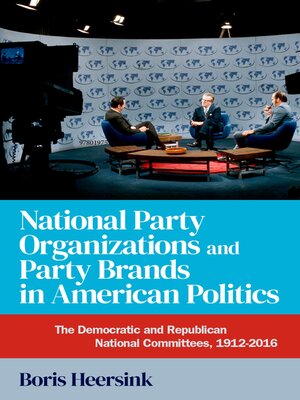National Party Organizations and Party Brands in American Politics
ebook ∣ The Democratic and Republican National Committees, 1912-2016
By Boris Heersink

Sign up to save your library
With an OverDrive account, you can save your favorite libraries for at-a-glance information about availability. Find out more about OverDrive accounts.
Find this title in Libby, the library reading app by OverDrive.



Search for a digital library with this title
Title found at these libraries:
| Library Name | Distance |
|---|---|
| Loading... |
A new assessment on the role, influence, and limitations of the Democratic and Republican National Committees in American political development. Scholars have long debated the role and importance of the Democratic and Republican National Committees in American politics. In National Party Organizations and Party Brands in American Politics, Boris Heersink identifies a core DNC and RNC role that has thus far been missed: creating national party brands. Drawing on extensive historical case studies and quantitative analysis, Heersink argues that the DNC and RNC have consistently prioritized their role of using publicity to inform voters about their parties' policies and priorities from the beginning of the twentieth century onwards. Both committees invested heavily in political communication tools with the goal of shaping voters' perceptions of their parties. As Heersink shows, the DNC and RNC often have considerable freedom in determining what type of brands to promote, placing them in the center of major intra-party debates in the twentieth century—including Prohibition, civil rights, foreign affairs, and economic policy. Analytically rigorous and marshaling a vast body of research on US elections between 1912 and 2016, this book highlights how important national party organizations are in setting the agenda in American politics.







